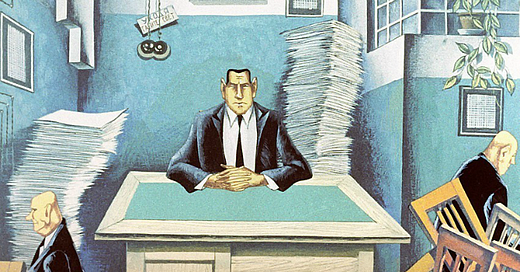The modern State promises to make our lives safer and more comfortable, in return for general authority to regulate society, backed up by police force. But just how much authority should we be ceding to the State over our lives? In the long run, the more power we cede to State institutions and officials, the more they can leverage and expand their power over society.
Historically, as the power of the State has steadily expanded over time, State officials have not hesitated to usurp the reasonable governmental functions that previously belonged to citizens and associations pursuing their legitimate interests in business, civil society, science, education, art, leisure, religion, and culture.
We have struck a Faustian deal with the State, conceding extraordinary power and prerogatives to it in return for greater “security.”
Now, in theory, it might sound like a good idea to entrust a single entity with the task of making the whole of society safe against every conceivable threat- safe from disease, safe from terrorism, safe from crime, safe from economic “shocks,” etc. But in practice, this level of control over an immensely complex, interconnected and fast-changing society requires an incredibly powerful and well-financed governmental apparatus.
The question is, who will keep us safe from it? Quis custodit custodes? Let’s put aside for the moment the fact that the “safety” provided by a Big Brother State is often illusory, given that it is often impossible to effectively control complex risks from a central fulcrum (consider the notorious failure of the lockdowns to stop viral spread). Even if the State has some success at managing risk, this success comes at a price.
Keep reading with a 7-day free trial
Subscribe to THE FREEDOM BLOG to keep reading this post and get 7 days of free access to the full post archives.




